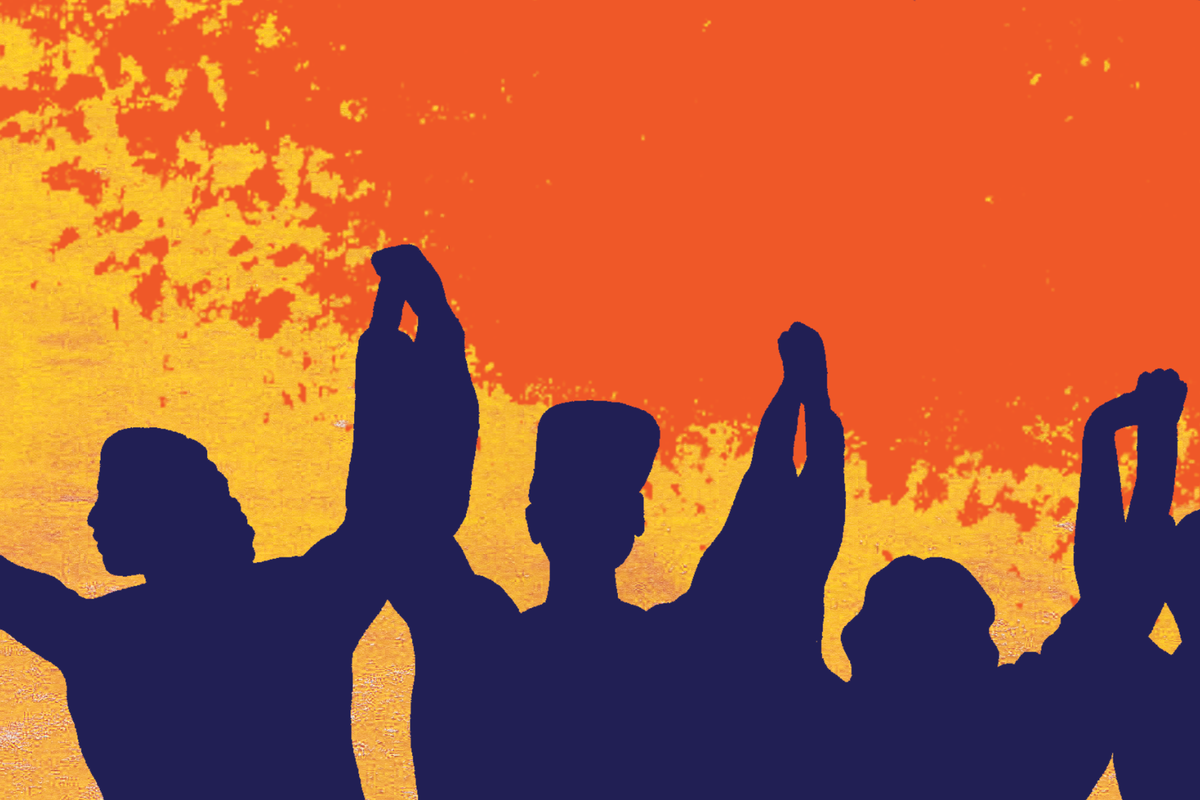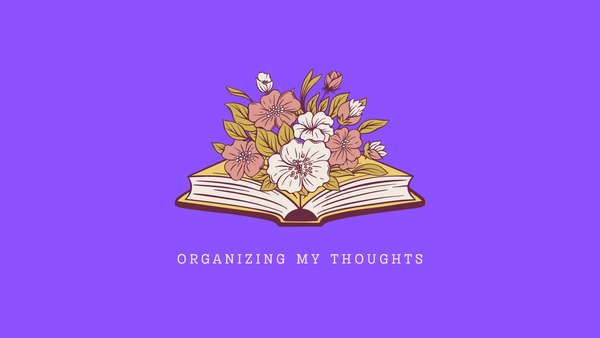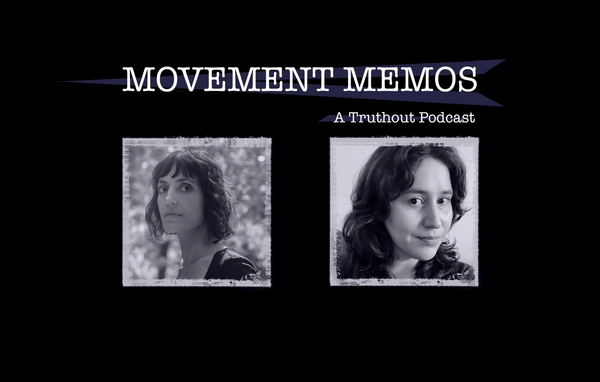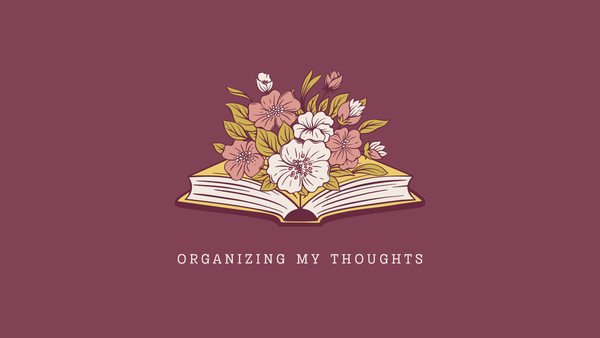Poetry as Violence | An Excerpt From Let This Radicalize You
"If these systems function without interruption, you will be told you are experiencing 'peace,'" write Kelly Hayes and Mariame Kaba.

This excerpt from the book Let This Radicalize You by Kelly Hayes and Mariame Kaba comes from a chapter entitled “Violence” in Social Movements and is being published here in solidarity with the people of Palestine.
***
On July 31, 2018, Palestinian poet, activist, and filmmaker Dareen Tatour was convicted in an Israeli court of “inciting violence” and “supporting a terrorist organization.” Tatour’s crime, as defined by the state of Israel, took the form of a poem. The poem, titled “Resist, My People, Resist Them,” was written in response to the extrajudicial execution of Palestinian student Hadil Hashlamoun and the burning of two Palestinian children, Mohammed Abu Khdeir and Ali Dawabsha. While the idea of a poem being criminalized may sound unthinkable to some, Israeli investigators argued, “The content, its exposure and the circumstances of its publication created a real possibility that acts of violence or terrorism will be committed.”
Arguing that her work had been mischaracterized, Tatour received support and expressions of solidarity from around the world. She had already been under house arrest for nearly three years at the time of her conviction. She would ultimately serve two months in prison before being released in September 2018.
In 2019, Tatour’s conviction for inciting terrorism via poetry was overturned, while other convictions regarding her social media posts remained intact. It’s important to note that Israel’s belated acknowledgment that Tatour’s poem was not a crime does nothing to address the violence the state of Israel inflicted on Tatour. Her arrest, house arrest, and imprisonment were not undone by the court’s eventual acknowledgment that Tatour had a right to artistic expression. State violence around the world is routinely dealt out in such a manner: the state reserves the right to overstep its own laws, and even when it subsequently acknowledges its mistakes, it has already subjected people to the indignity of arrest, deprived them of their liberty, or subjected them to other violence. Such abuse is intentionally crafted to discourage others from expressing themselves or taking action, because it sends a message: even if the government is in the wrong and is ultimately forced to acknowledge as much, it can make you suffer and ruin your life in the meantime.
In her poem, Tatour wrote,
Resist, my people, resist them.
In Jerusalem, I dressed my wounds and breathed my
sorrows
And carried the soul in my palm
For an Arab Palestine.
I will not succumb to the “peaceful solution,” Never lower my flags
Until I evict them from my land.
There is a long history of the Israeli government seeking to suppress Palestinian art and cultural expression. The US passed similar laws as it sought to stamp out Native cultures in the United States. In Israel, Palestinian activist Lea Kayali told us that, at one time, it was illegal for Palestinians to use the colors of the Palestinian flag—red, white, green, and black—in combination in any single piece of art. “I grew up on stories about [how if] you were stopped with red, white, green, and black paint that you would just claim you were painting watermelons instead. So then watermelons became a symbol of resistance.”
In 1981, Israel Shahak wrote about art being confiscated from Palestinian shops because it was illegal to use the colors white, black, green, and red “too closely” in any publicly displayed work. Other works of Palestinian art were also targeted. As Shahak wrote, “A horse wildly rearing on his hind legs was confiscated because, so the governor said, the name of the picture, which was ‘The Horse Refuses,’ is of course a ‘nationalistic incitement.’”
As Kayali told us, the Israeli government’s definition of violence “contorts itself to repress any and all forms of our resistance.” Kayali explained that even during periods when it was not officially illegal to raise the Palestinian flag, nonstate actors enforce its prohibition by removing or destroying flags that are displayed in public and targeting those who carry them. She noted that this kind of delegated violence, as Ruth Wilson Gilmore would call it, is also occurring in the United States, where nonstate actors have been rallied to enact violence against the same communities targeted by state violence. In Israel, nonstate actors participate in acts of ethnic cleansing, such as the mass theft of Palestinian homes, in which mobs of Israelis invade and move into the homes of Palestinian residents, forcing them from their communities en masse, in addition to other acts of violence.
Given the regular theft and demolition of Palestinian housing, the frequent murder of Palestinians at the hands of the Israel Defense Forces, and the overall violence of Israeli apartheid, one can easily understand why Tatour would write,
Resist, my people, resist them.
Resist the settler’s robbery
And follow the caravan of martyrs.
Shred the disgraceful constitution
Which imposed degradation and humiliation And deterred us from restoring justice.
Kayali points out that under international law, Palestinians have the right to violently resist Israel’s unlawful occupation of Gaza, but she also cautions against placing an overemphasis on “structures of law and legality.” As Kayali told Kelly on Movement Memos in May 2021, as Israeli bombs were raining down on Gaza, “What this comes down to, in my mind, is kind of the omnipresence of neoliberalism and its tight grip on our framing of justice.” Kayali explained, “After the Oslo Accords, which were the peace deals that happened in the 1990s, we saw a really detrimental shift in international discourse about Palestine that really framed everything in terms of the rights of the individual, everything centering the individual and the ascendance of the state as the ultimate goal of the Palestinian people.” Kayali says this shift ushered in an era of discourse about a “two-state solution” and protecting the “human rights” of Palestinian people. Discussions of human rights are inherently limited, she noted, be- cause rights are afforded to individuals by larger structures of power and can be revoked by those structures. “I want my existence and liberation to be valid, whether or not the UN agrees with me,” Kayali told us. “So I think what this framing can deprive us of is an understanding of collectivism and an understanding of liberation.”
Even though Israel blatantly and regularly violates international law, the United States and others routinely defend Israel as an important ally, insisting “Israel has the right to exist.” This language not only positions all Palestinian struggles for self-determination and survival as an existential threat, but it also confers upon a state a fundamental right that Israel does not extend to Palestinians, who are not treated as though they have an inherent right to exist.
In the United States, Israel’s many crimes are often glossed over or defended by those who insist the situation is “complicated.” With rare exception, the word “violence” is seldom invoked by US officials to describe the executions, imprisonment, and torture Palestinians experience at the hands of the Israeli government or the apartheid conditions in which Palestinians are forced to live. As is the case in the US, institutionalized violence is normalized. When people in the United States do rally against Israeli violence, it is usually in response to an active bombing campaign being perpetrated by Israel against Gaza. During such times, marches and other protests may take place in the US, but once the bombs temporarily stop falling—when supposed “peace” is “achieved”—most Americans typically turn their attention elsewhere.
Yet, even within the US itself, state violence against Palestinians continues. The Boycott, Divestment, and Sanctions movement (BDS), which “works to end international support for Israel’s oppression of Palestinians and pressure Israel to comply with international law” has been criminalized in multiple countries, including many parts of the US.26 In June 2022, the US Court of Appeals for the Eighth Circuit upheld an Arkansas law forbidding public contractors from participating in the BDS movement, arguing that boycotts are not a protected form of speech. Arkansas is just one of more than thirty states that have passed anti-BDS laws in the last several years. In the United States, Canada, France, Germany, and the United Kingdom, Palestinian activists—as well as Jewish activists working in solidarity with them—have been targeted and accused of antisemitism for condemning Israeli apartheid.
Kayali noted that, from Israel to the US and beyond, Palestinians’ armed struggle and nonviolent struggle are both treated as “terrorism,” or as an attack on Israel, or even all Jewish people: “Student activism [in Palestine] is criminalized, nonviolent struggle in the diaspora is criminalized, international mutual aid or charitable supports, including purely humanitarian support, is illegal. Nonengagement through boycotts and diaspora is criminalized.”
The repression of Palestinian resistance offers a profound example of the elasticity of violence as a concept and shows how, while the powerful can wage war on particular communities with impunity and claim innocence, the oppressed can be deemed a violent threat simply for attempting to assert their rights or defend their humanity. As Tatour wrote,
They burned blameless children;
As for Hadil, they sniped her in public, Killed her in broad daylight.
Resist, my people, resist them.
Resist the colonialist’s onslaught.
The maintenance of global capitalism necessitates mass death, just as the maintenance of capitalism in the United States requires the violence of the carceral system. If these systems function without interruption, you will be told you are experiencing “peace.” After all, police are often cast as “peace officers,” and soldiers are called “peacekeepers.”
If you choose to disrupt these systems, passively, destructively, or by way of extending mutual aid, the concept of violence may be stretched and manipulated by the powerful to encompass your work. That is why we must not allow the frameworks of the powerful to define the bounds of morality in our politics and our action. The elastic concepts of criminality and violence, as controlled by the powerful, will always be bent against us.
Instead, we must expose and dismantle the supposed moral frameworks of the death-makers. We must craft our own narratives and uplift our own frameworks, which implicate the system itself. We must, as Tatour says, “resist the colonialist’s onslaught.”
Author’s note: Dareen Tatour’s poem, as quoted here, was translated by the poet Tariq al Haydar.




